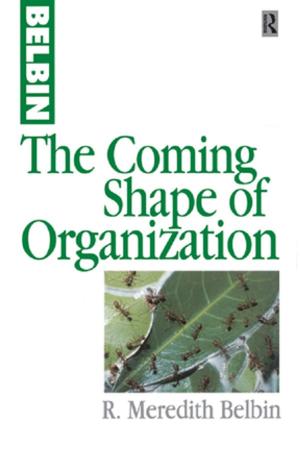Mobilizing Hospitality
The Ethics of Social Relations in a Mobile World
Nonfiction, Social & Cultural Studies, Social Science| Author: | Sarah Gibson | ISBN: | 9781317094951 |
| Publisher: | Taylor and Francis | Publication: | April 15, 2016 |
| Imprint: | Routledge | Language: | English |
| Author: | Sarah Gibson |
| ISBN: | 9781317094951 |
| Publisher: | Taylor and Francis |
| Publication: | April 15, 2016 |
| Imprint: | Routledge |
| Language: | English |
The concept of ’mobility’ has sparked lively academic debate in recent years. Drawing on research from the fields of anthropology, geography, sociology and tourism studies, this volume examines the intersection between mobility and hospitality, highlighting the issues that emerge as we encounter strangers in a mobile world. Through a series of diverse empirical accounts, it focuses on the transnational movement of people in the contexts of migration and tourism and examines how hospitality serves as a way of promoting and policing encounters, questioning how these relations are marked by exclusion as well as inclusion, and by violence as well as by kindness. In addition to exploring the power relations between mobile populations (hosts and guests) and attitudes (hospitality and hostility), the book also examines spaces of hospitality and mobility, such as cities, hotels, clubs, cafes, spas, asylums, restaurants, homes and homepages. In doing so, it makes a significant contribution to the political and ethical dimensions of mobile social relations.
The concept of ’mobility’ has sparked lively academic debate in recent years. Drawing on research from the fields of anthropology, geography, sociology and tourism studies, this volume examines the intersection between mobility and hospitality, highlighting the issues that emerge as we encounter strangers in a mobile world. Through a series of diverse empirical accounts, it focuses on the transnational movement of people in the contexts of migration and tourism and examines how hospitality serves as a way of promoting and policing encounters, questioning how these relations are marked by exclusion as well as inclusion, and by violence as well as by kindness. In addition to exploring the power relations between mobile populations (hosts and guests) and attitudes (hospitality and hostility), the book also examines spaces of hospitality and mobility, such as cities, hotels, clubs, cafes, spas, asylums, restaurants, homes and homepages. In doing so, it makes a significant contribution to the political and ethical dimensions of mobile social relations.















